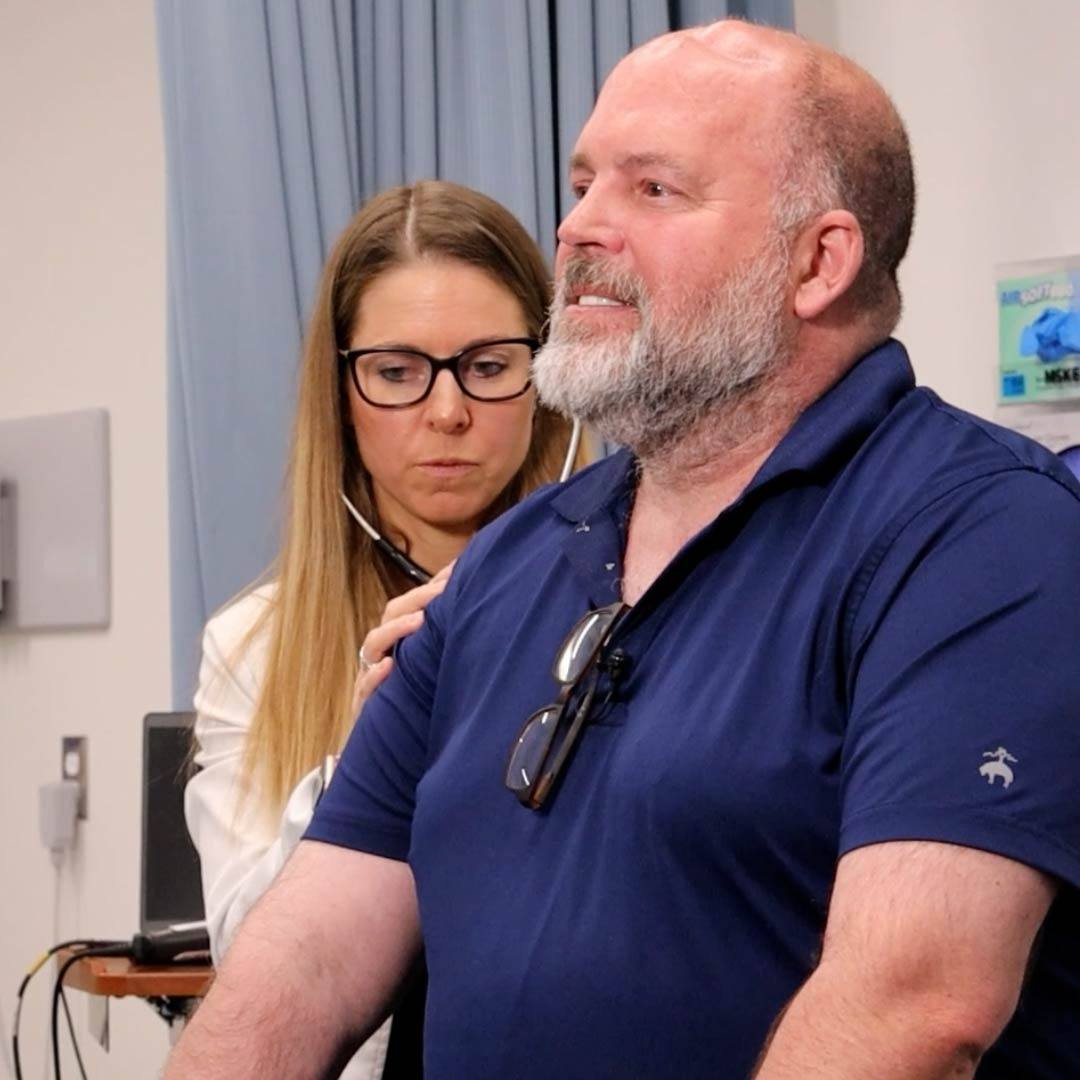It’s a condition with no outward symptoms. But for the hundreds of thousands of teens and adults in the U.S. living with postural orthostatic tachycardia syndrome, or POTS, the medical disorder has a significant impact on their lives. Christine Esposito is one of those people.
Christine was diagnosed with the condition in 2002 by Mayo Clinic neurologist Jeremy K. Cutsforth-Gregory, M.D.
POTS is a disorder that affects a person’s autonomic nerves — the nerves that control involuntary body functions, such as heart rate, blood pressure, body temperature, perspiration, and bowel and bladder functions. Not everyone has the same symptoms, but the condition universally causes rapid heart rates and dizziness when moving from a resting to standing position.
Christine’s symptoms began with fainting, heart palpitations and chest pains. Then they progressed to more serious problems, including migraines, chronic pain, gastrointestinal issues and chronic fatigue syndrome. Christine’s symptoms prevented her from going to school and, some days, from even getting out of bed.
“They teach you how to live with POTS, basically ─ everything from posture to exercise to eating.” — Christine Esposito
While there is no cure the condition, symptoms often can be managed with medications, along with behavior changes, such as exercising regularly; taking in salt, which allows the body’s vessels to retain fluid; and using leg compression, which boosts blood flow.
Thanks to education and access to resources like Mayo Clinic’s POTS Boot Camp — a program that helps people learn to manage symptoms — Christine now understands how to better control her condition. “They teach you how to live with POTS, basically ─ everything from posture to exercise to eating,” Christine says.
For Christine, a furry canine friend who goes by the name of Zoe is also a comfort.
“On days that I don’t feel well, Zoe will lay by me. She will rest with me. She will walk to the bathroom with me,” Christine says. “On days I feel great, we are outside in the yard.”
Equipped with better understanding and tools to cope with her symptoms, Christine has been able to get back to enjoying her life once again.
To learn more about POTS and Christine’s story, watch the video below:
HELPFUL LINKS:
- Read more about POTS.
- Learn about the Department of Neurology at Mayo Clinic.
- Explore Mayo Clinic’s Rochester campus.
- Request an appointment.








